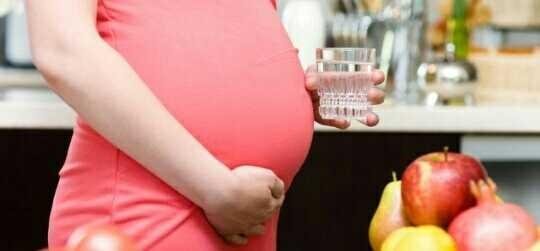Rare, this woman is pregnant again while pregnant
A California woman, the United States, is shocked by her pregnancy condition. She is pregnant again while she is pregnant with other couples.

According to the 31-year-old Jessica Allen's New York Post page, agreed to be a pregnant mother-in-law for a Chinese couple looking to have children.
In April 2016, physicians used in vitro fertilization to produce embryos for Chinese partners, and implanted the embryo into Allen's uterus.
Allen got pregnant immediately from another couple's baby, but at six weeks of pregnancy, she was told she was pregnant with twins. The second fetus is his own.
Allen was "very surprised" when he discovered it contained two fetuses. He just believes the Chinese couple's embryo is a twin.
After a month of birth the two babies, he knew the twins are not identical. They look different, and a DNA test tells a baby is Allen's biological child and the other baby is a Chinese couple's son.
Apparently, in this very rare medical incident called superfetation, pregnant naturally after IVF procedure.
"Usually when a woman is pregnant, some biological processes prevent her from becoming pregnant for the second time during pregnancy, her body releases hormones that stop ovulation, a mucous blockage that develops in the cervix, which prevents sperm from walking into the uterus, and the lining of the uterus changes , making it difficult for other embryos to be implanted, "said Dr. Saima Aftab, medical director of the Fetal Care Center at Nicklaus Children's Hospital, told Live Science on Tuesday (31/10).
But with superfetation, a woman continues to ovulate after she is pregnant, and her ovaries release another egg which is then fertilized, resulting in a second pregnancy.
"It is important to note with superfetation, the two fetuses have different gestational ages, usually just a few weeks away," Aftab said.
Pregnancy superfetation differs from identical twins, in which two eggs are fertilized at the same time, and the fetus has the same gestational age.
Aftab says the possibility of superfetation is more frequent than reported, the condition may not be detected because both fetuses are so close that they are considered twins.
"When doctors detect a clear difference in fetal maturity, or as in Allen's case, babies have different parents (or different fathers), the case is more easily detected," Aftab said.
Allen was surprised to learn that one of the babies was his.
"I have my own child, I do not know he's mine," Allen told ABC News.